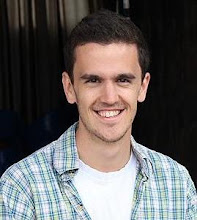It seems about time for a blog, as I haven’t yet put to words anything that has happened since I arrived in the Congo that stormy November night! (Sounds dramatic doesn’t it?) Right now seems the perfect time, sitting at a desk in beautiful Zambia where I’ve been shipped to whilst the Congo’s unpredictably volatile elections take place. Where to start! These first two weeks have been filled with new sights, new sounds, and definitely new smells. Hugging the borders of my new home - the bustling city of Likasi, DRC – are countless communities devastated by a history wrought with war, disease, famine and the most heinous criminal activity. The Congo seems absolutely defined by its contradictions. The world capital of rape and torture, yet 95% of the country claim themselves Christian. Its brutal history has left scars on a culture that now seems definitively violent, a violence found as much on the market streets as in the halls of government, where current presidential candidates have promised bloodshed for anyone who doesn’t lend them their support. And yet for so many here hope is not absurd or misplaced but as integrated a part of life as the pain and poverty they experience moment by moment. In fact the two seem impossibly married. I’m learning this in my heart too.
Here I’m left without so many of those little things I never realised I would miss; chief of them chocolate, and the English language. You can slip into feeling isolated or alien when you’re lost in a people and a language you don’t understand. It strips you of your security and comfort. And yet of all that the Congo has given me already, that is probably the greatest gift. I’m learning every day that God is enough. Absolute dependency = extravagant provision. You can’t really open your hands to the gifts of God until you let go of everything else you’re clinging to. Sometimes he’s audacious enough to kick it out of your hands. Or send you to the Congo. It’s when I’m weak that God does his best work. That isn’t a cliché! It isn’t a Christian Hallmark card. It’s at the root of so much. I’m learning every day to see like Jesus sees. I’m learning to give of my selfish self without regard or request. I’m learning that God has a plan and a promise written upon the lives of every single one of his kids, that not one is forgotten, not one abandoned. There is not one of them whose fingerprint God didn’t labour over, whose hairs God didn’t count, whose future God doesn’t imagine, envision or dream about. And when you see that, then you see the real, deeper poverty etched into these children’s lives –that their future has been stolen from them.
In an urban community near our home I watched as the open coffin of an eight year old orphan was carried out before his wailing grandmother. I’m still not sure what to think or feel. A boy who watched his father walk out on him, then stood over his mother’s grave, and died at eight years old of a preventable disease. It makes you ask the kind of questions that might have answers, but you don’t expect to hear them. His grandmother knew that it’s enough sometimes just to yell. And that’s life in the Congo, and has been for such a long tainted past. Life stolen by Westerners who robbed the country of its resources and chopped off the hands of the enslaved for their death count quota. Life stolen by civil wars killing more than WWII and then left forgotten. Life stolen by volcanic devastation, by raiding rebels, by famine and disease and malnutrition. In the Congo life is fragile, and always on the verge of being broken. But there is life. Bursting through the cracks of the blood stained ground life is springing up, real and beautiful life. You can feel it. You can see it, there in the faces of the countless people living to bring hope to those with none, people who have refused to be a product of hopelessness. Teachers who every day walk 12km to give a lesson in one school then 12km back to give a lesson in another. Men who orphaned children run to because they see in them a father who cares. Widows pooling together everything they have so that none of their children will go hungry. Life is breaking through the cracks. As for me, I’ve come alive in the Congo in a way I could nowhere else. I’m stepping deeper into the Father’s heart. Without it, none of this is worthwhile. For now, this is exactly where he wants me to be – living in the plans and promises of God. And I get to watch, maybe even help, as life breaks through...more and better life than anybody ever dreamed of.
